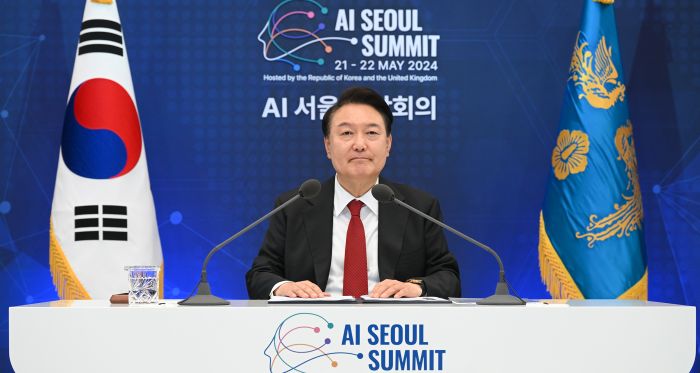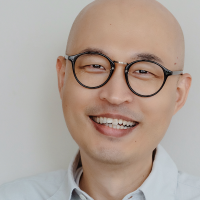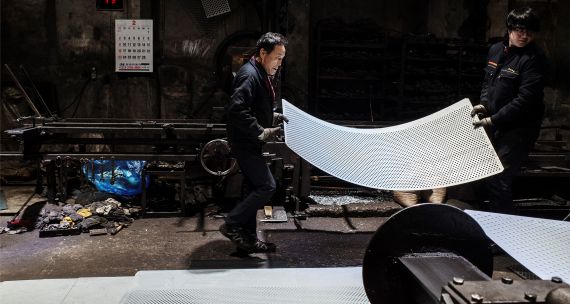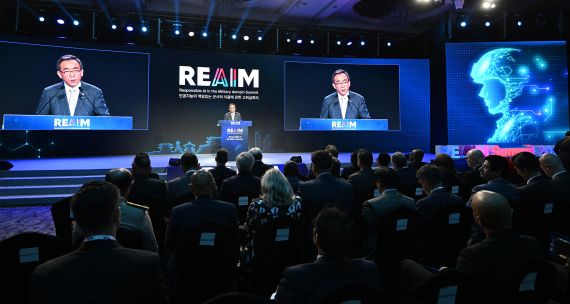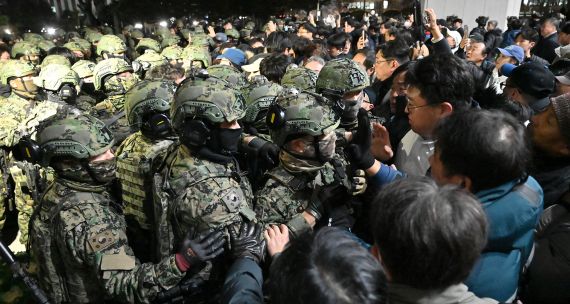The Takeaway
The 2024 AI Seoul Summit, co-hosted by South Korea and the U.K. from May 21-22, bolstered South Korea’s role in global leadership in artificial intelligence (AI) safety and innovation.
Two major outcomes of the summit were the consensus reached among attending world leaders — including Canadian Prime Minister Justin Trudeau — to establish a network of AI safety institutes and a commitment by leading AI companies on voluntary AI safety standards.
However, South Korea’s challenges in passing domestic AI legislation prior to the summit were a sobering reminder of the difficulties countries face in converting principles and pledges into action.
In Brief
- The virtual summit, which focused on solidifying global AI norms and governance, was attended by politicians and entrepreneurs from around the world, including the G7, EU, Australia, Canada, and Singapore, as well as heads of prominent international organizations such as the UN and the OECD. Business leaders from Amazon, Google, Meta, Microsoft, Naver, OpenAI, and Samsung also attended. Participants adopted the Seoul Declaration for Safe, Innovative and Inclusive AI and the Seoul Statement of Intent toward International Cooperation on AI Safety Science.
- High-level government officials from 28 countries, including Canada, also discussed strategies to bolster AI safety and sustainable development, highlighting collaborative efforts to mitigate AI’s potential adverse effects on the energy, environment, and employment sectors. The summit culminated in the adoption of the Seoul Ministerial Statement, which incorporated South Korea’s vision for AI and semiconductor energy efficiency.
- Separately, leading figures from the tech industry, academia, and civil society discussed the Seoul AI Business Pledge, which promotes responsible AI development, ensures equitable benefits from AI advancements, and supports international standards. Fourteen leading AI corporations agreed to the pledge.
- Trudeau emphasized the need for international collaboration on AI safety and positioned Canada as a global leader in promoting ethical AI practices. He highlighted Canada’s proactive role in AI governance and noted the country’s recent investment in a C$2.4-billion AI initiative, including C$50 million to establish a Canadian AI Safety Institute.
- His statement corresponds with Canada’s longstanding commitment to AI research and development, first declared in 2017, when Canada released the world’s first national AI strategy. But given the fast-evolving AI landscape, some critics argue that Canada’s approach needs to be wider in scope and better leverage private partnerships.
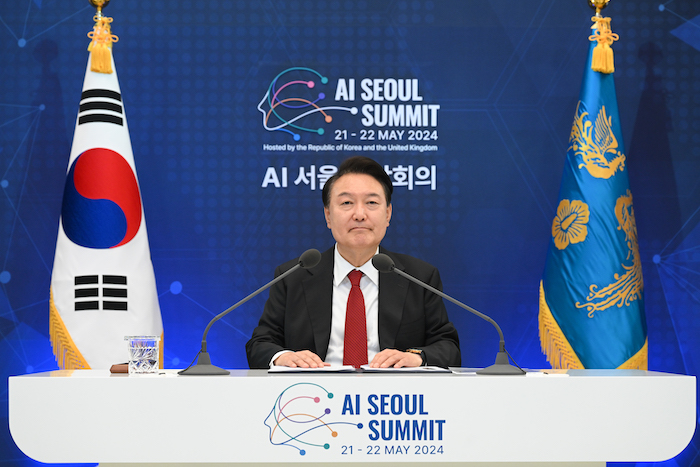
Implications
The broad consensus on the principles of AI governance marked a positive step towards international co-operation. This consensus builds on the Bletchley Declaration — the principles on the safe and human-centric development of AI that were agreed to by 28 countries at the previous summit hosted by the U.K.
The Seoul Declaration further emphasizes international co-operation to manage AI’s transformative and potentially hazardous impacts. Nevertheless, the voluntary nature of these commitments, as well as the lack of clear regulatory targets and specific plans or criteria for assessing safety, underscore the difficulties in achieving enforceable and impactful global standards.
The summit accentuated the difficulties of balancing regulation and innovation. While there is a push to establish safeguards during the development stages of new technologies, industry leaders argued that overly stringent regulations could stifle innovation.
What's Next
- Translating talk into action
As co-host, South Korea succeeded in broadening the focus of these discussions beyond safety to encompass issues related to innovation and inclusivity, setting the stage for the next summit. France will host the 2025 “Summit for AI Action,” signalling a desire to shift the focus to actionable outcomes. In alignment with this shift, Canada and the U.K. announced a joint ministerial statement on May 20 to advance AI safety, enhance future co-operation between their AI safety institutes, and further solidify the global network focused on responsible AI adoption. - Pursuing opportunities for South Korea–Canada collaboration
The AI Seoul Summit also set the stage for South Korea and Canada to intensify their collaboration by leveraging their existing strategic partnership and co-operative projects. This includes deploying South Korean educational trainees at the University of Toronto’s AI convergence-education program and continuing the annual high-level economic security dialogue and biannual meeting of the Joint Committee on Science, Technology, and Innovation. - Overcoming domestic hurdles
Prior to the summit in Seoul, South Korea’s draft “AI Basic Law” failed to pass, leaving a legislative vacuum on AI safety and governance and casting doubt on South Korean President Yoon’s commitment to make the country a top-three AI powerhouse after the U.S. and China. The country’s National Assembly plans to revisit — and possibly redraft — this legislation. South Korea also plans to bolster its AI safety infrastructure by establishing an AI safety research institute by the end of 2024.
- Making dialogue more inclusive
South Korea also tried to cautiously engage China, which signed on to the earlier Bletchley Declaration, even though part of the previous summit was pitched to 'like-minded countries,' namely, democracies. While a Chinese government official did not attend, nor sign the Seoul Declaration, Chinese representatives and China-based AI companies were invited to the ministerial session and the AI Global Forum, where they signed ministerial and business statements. According to the South Korean president’s office, this ongoing engagement opens the door to potential participation by Chinese leadership in future AI summits and a more inclusive global dialogue on AI governance.
• Edited by Ted Fraser; graphic design by Chloe Fenemore.
